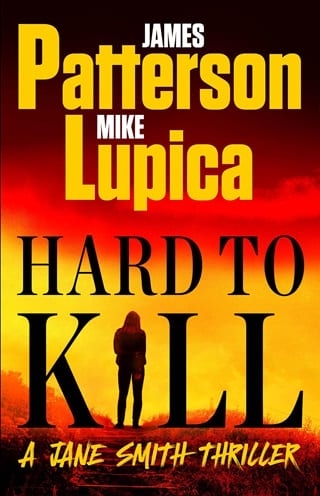Fifty-Three
FIFTY-THREE
KEVIN AHEARN AND I are in Judge Kane's chambers at the Nassau County Courthouse by ten. No robe for the judge today, just an exquisitely tailored pantsuit.
I'm already halfway through my presentation about why it would make sense for all concerned to move up the trial date. I began by telling her, and Ahearn, about having a conflict that may at some point down the line affect my ability to responsibly conclude the trial if it doesn't begin for six or more months.
The judge asks what kind of conflict.
"Personal," I say.
"Can I assume that you're talking about your sister's health concerns?" Judge Kane asks.
You don't know the half of it, sister.
"Yes, Your Honor," I say with a straight face, "this is very much about cancer, unfortunately."
"But I have to point out, and with all due respect, Ms. Smith, that you were aware of your sister's cancer when you chose to resume your defense of Mr. Jacobson, knowing that the trial was scheduled to begin next spring."
"I did know," I say. "But my sister's situation is only one element of my request to the court, if you'll allow me to continue. Because we're talking here about the professional as well as the personal."
From there I throw everything I have at her. It's another founding principle of lawyering, one they really should teach even at the best law schools:
Throw enough shit at the wall and the law of averages says some of it will eventually stick.
All of it, if you're lucky.
And even as a kid, my dad told me I had a great arm, and not just for a girl.
I tell Judge Kane that the more intense the media coverage of Rob Jacobson, now that he's been charged with two consecutive triple homicides, the less chance I have of getting him a fair trial.
"Not because of you, Your Honor. Absolutely not because of you. But all of us in this room know that no matter how much you tell the jury to ignore the coverage, it's pretty much impossible in the modern world. It's not like in the old days, when you could tell them to stay away from newspapers. It doesn't work that way any longer, not when they're on their phones before they make it to the bathroom."
I can stand now, as if we're back in court and I'm in front of her bench, and not her desk. As I do, she actually smiles.
"In one of my favorite old movies," she says, "I believe it was the Sundance Kid who said he was better when he moved."
I move to the right of the desk, so both she and Ahearn can see me.
"The bottom line," I say, "is that the only fair trial my client can get has to begin as soon as possible. I know this is an old legal chestnut, but it applies in this case: Slow justice is no justice at all."
And sit back down. I look over to see Ahearn smiling at me.
"Note to self," he says. "If I'm ever accused of killing three people, my first call needs to be to Jane Smith."
"Very funny."
"Wasn't trying to be funny," he says.
"Is there anything relevant you'd like to add, Mr. Ahearn?" Judge Kane asks.
"No, Your Honor. It's the state's belief that everybody's interests are best served by not waiting until next year." He smiles at her now. "If necessary, I'd be ready to make my opening statement this afternoon. So, for once, and maybe for the last time, Ms. Smith and I are in agreement and our interests are aligned."
Judge Kane leans forward and hard-looks at me.
"Just to be clear, Ms. Smith. Is there some other reason, one you haven't shared here today, why you want to fast-track these proceedings?"
"No, Your Honor."
Not the first time I've lied to a judge.
She says she'll check the court calendar and maybe get back to me as early as this afternoon. I thank Judge Killer Kane for her time and walk out of her chambers smiling. Not because of the lie I just told her. No. It's because I know I've done my job today. I've been a good lawyer.
All I've ever wanted to be.
In sickness and in health.
I walk down the hall to an empty ladies' room and lean against the wall. I don't cry. I just close my eyes and think about what I've done, because I have just hidden behind my sister's cancer and not told either the judge or the district attorney about my own.
It is another choice I've made. Cancer isn't. The way I live my life is. In the last six months, I've been shot at and had my house broken into and been threatened. Jimmy Cunniff could have been killed on multiple occasions. My sister told me I should concentrate on this case and let God sort out the rest of it.
But a normal person would be doing what Brigid is doing, concentrating on my recovery, letting someone else defend Rob Jacobson, and taking myself and Jimmy out of the line of fire.
Fight for my life and not his.
I push off the wall and walk over to the mirror and smile into it.
"That's what a normal person absolutely would do," I say in the empty room. "But you're not."
 Fullepub
Fullepub 



